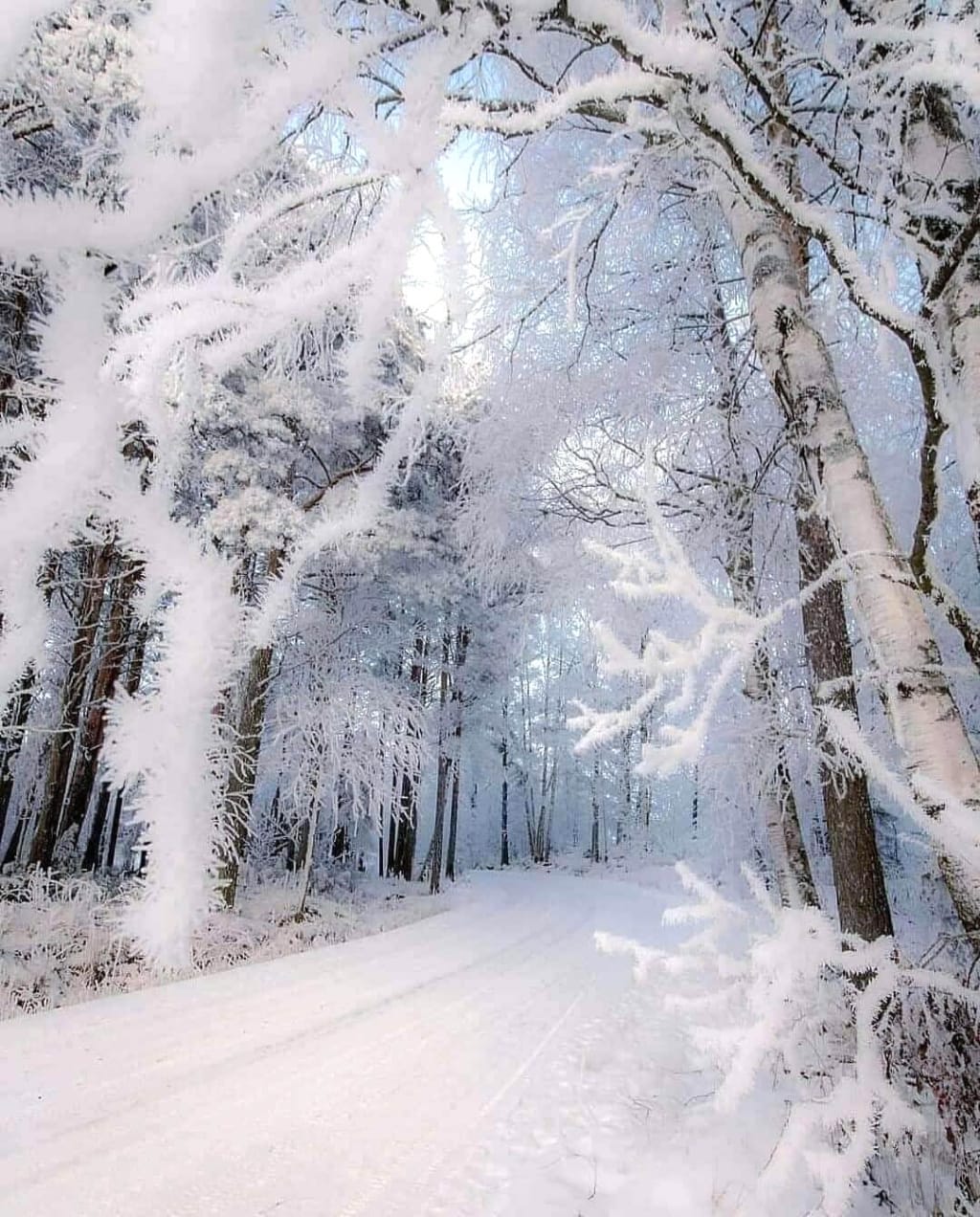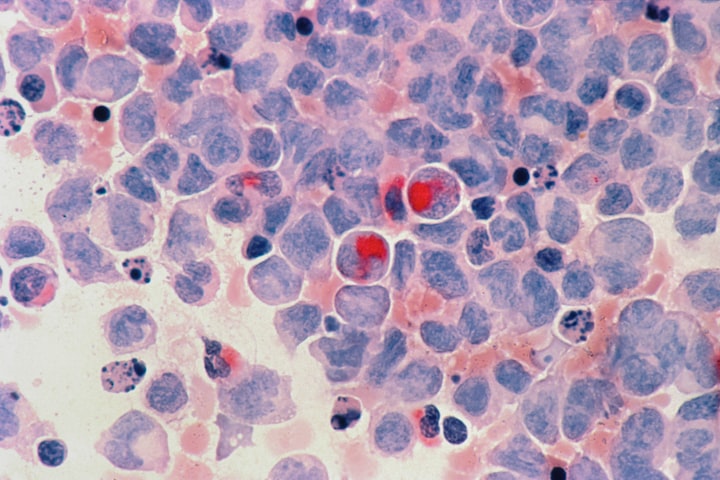Trivia Benefits of Winter & Snow
It's time to change our attitude about winter!

It’s time to change our attitude about the cold season. “Hmmm…”, you say. “This article must be talking about recreational activities only available in winter… sledding, skiing, ice skating, building a snowman or a snow fort, forming snow angels, and letting the kids paint a snow picture with a spray bottle full of food-coloring and water." Nope! You already know about the enjoyment of winter recreation. For a moment, quit grumbling about the icy roads and school closures and consider some seldom-known winter snow benefits for plants, animals, and humans:
PLANTS:
-Perhaps the first benefit that comes to mind is that we don’t have to mow the lawn for awhile in the winter. But don’t we all need some down time in order to get some needed maintenance done? Some plants need that down-time for maintenance, too; such as breaking down and remaking proteins and maintaining cell membranes.
-Plants don’t grow well in compacted soils—their growth is hindered just as if they hit a brick wall. Winter frost to the rescue! It pulverizes heavy clay soils by expanding water—like breaking open holes in that brick wall, so the plants can grow through.
-In order to blossom or germinate in the spring, some plants need to go through a sufficiently cold winter. There’s a fancy name for it: “vernalization”. In plain language, vernalization is like when we need to ‘chill’ in order to rest and recover before being productive. Some plants need what’s called: “chill hours”, too. Fruit trees, for instance, put on more buds after a cold winter. Can you imagine a world without enough apples, apricots, peaches, or even berries and nuts? We don’t have to, thanks to winter.
-There are reasons why farmers leave residue on their fields to capture more snow:
1) Storing Precious Moisture: 10 inches of snow = 1 inch of rain (depending upon how heavy the snow is). The great thing about moisture from snow is that since the weather is cold, very little of that moisture evaporates. It is able to seep down into the ground. Some plants, such as winter wheat, may look dormant; but beneath the ground, their roots are still growing—if there is moisture from the snow.
2) Preventing Erosion: If there had been snow on the ground during the high winds of the Dust Bowl, the soil particles wouldn’t have been able to be picked up and blown away. The top soil is the richest, most nutritious layer of soil that plants need. Winter snow protects precious top soil.
3) Provides Insulation: Winter snow is like a blanket over the soil, protecting the crown of plants from cold injury, while providing moisture. Imagine them curled up under their blanket of snow, not having to get up until spring!
ANIMALS:
-Sure, many birds and large mammals escape the winter by migrating south (just as some people do). But what about the many invertebrates and small mammals who can’t head south? How does winter snow benefit them?
1) Protection: It’s more difficult for predators to get them, if they’re hiding beneath the snow.
2) Favorable Conditions: Insulating snow prevents a layer of ice from forming in the soil, resulting in more favorable conditions for the animals who make their home in the ground.
-Also, without winter, we wouldn’t be able to do research into animals that hibernate. These provide insights that may greatly benefit humans in the following ways:
1) Neurodegenerative Diseases (such as Alzheimer’s): The plasticity of the way the brain neurons shrink and shrivel in their long sleep, and then flourishingly restore to normal upon awakening, is contributed to an amazing protein called: “tau”. If it builds up the brains in hibernating animals, could it build up the brains of Alzheimer’s patients?
2) Transplants: How do the cells and tissues of hibernating animals survive winter’s cold temperatures? Could learning about it improve the preservation of human tissue transported for transplants?
3) Muscle Deterioration: Why don’t the muscles of hibernating animals deteriorate after being sedentary for so long? Could learning about it improve the conditions of humans on long bed rest, such as coma patients? What about helping other muscle disorders?
4) Degenerative Bones: Likewise, why don’t the bones of hibernating animals deteriorate after being sedentary for so long? Could learning about it help treat degenerative bone diseases in humans?
5) Space Travel: Could study of hibernation lead to stasis in space travel? The possibilities are fascinating.
Finally, let's talk about...
WINTER’S BENEFITS TO HUMANS:
-Our cognitive abilities are better in colder temperatures! Research has shown that we remember better and react better in winter vs. summer. So, it stands to reason that we’ll come up with better ideas and problem-solving in the winter then we do in the summer.
-We burn more calories in colder temperatures! Even when we’re sleeping, our bodies work harder to keep us warm, thus more calories are burned.
-Winter lowers the risk of Type 2 Diabetes! Why? Because we form more of what’s called “brown fat”, which burns energy to keep us warm. “White fat” = bad (because it leads to obesity), but “brown fat” = good. When it’s cold, “white fat” takes on the beneficial characteristics of “brown fat”, boosting our metabolism!
-We sleep better when it’s cooler! When it’s warm, both our slow wave and REM sleep are decreased. Cooler temperatures help your body’s core temperature drop quicker, which usually needs to happen before you fall asleep. Sleeping better is a ‘biggie’ because the most important thing we can do to improve our health is to get good nights’ sleep—it benefits us more even than exercise and a healthy diet (which are also important).
-Winter reduces inflammation! If we suffer from swelling and pain, going outside in the winter might feel like putting a giant ice pack on your entire body.
-Winter rids us of pesky mosquitos, flies, and other bothersome insects—and some pathogens! What a relief it is not to worry about mosquito-borne illnesses in winter—or be constantly swishing away flies and gnats.
-We have less skin breakouts in winter! There is less redness in skin in cooler temperatures, because cold makes your blood vessels constrict. You also produce less oil in your skin in cooler temperatures, thus less breakouts.
-We may fight infections better in winter’s cold! Researchers think this is because our immune system can become activated from the cold.
-Winter exercise strengthens our heart muscles! Why? Because not only is the heart pumping for the activity, but it also has to make sure we’re warm enough. CAUTION: If you already have a heart condition, winter exercise could be dangerous; so seek a doctor’s advise before starting any exercise routine.
Well, did any of the above trivia help improve your attitude about winter just a little bit? There are good reasons for our changing seasons… many, we are just beginning to discover.
“God is greater than we can know.” (Job 36:26)
About the Creator
Karla Bowen Herman
I've always wanted to be an author, ever since I was a little girl. Time has a way of flying by when you're raising a family. But, I've discovered you're never too old to start! May something I write someday, lift someone's heart.






Comments
There are no comments for this story
Be the first to respond and start the conversation.